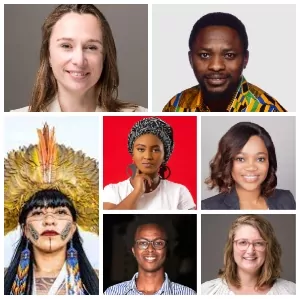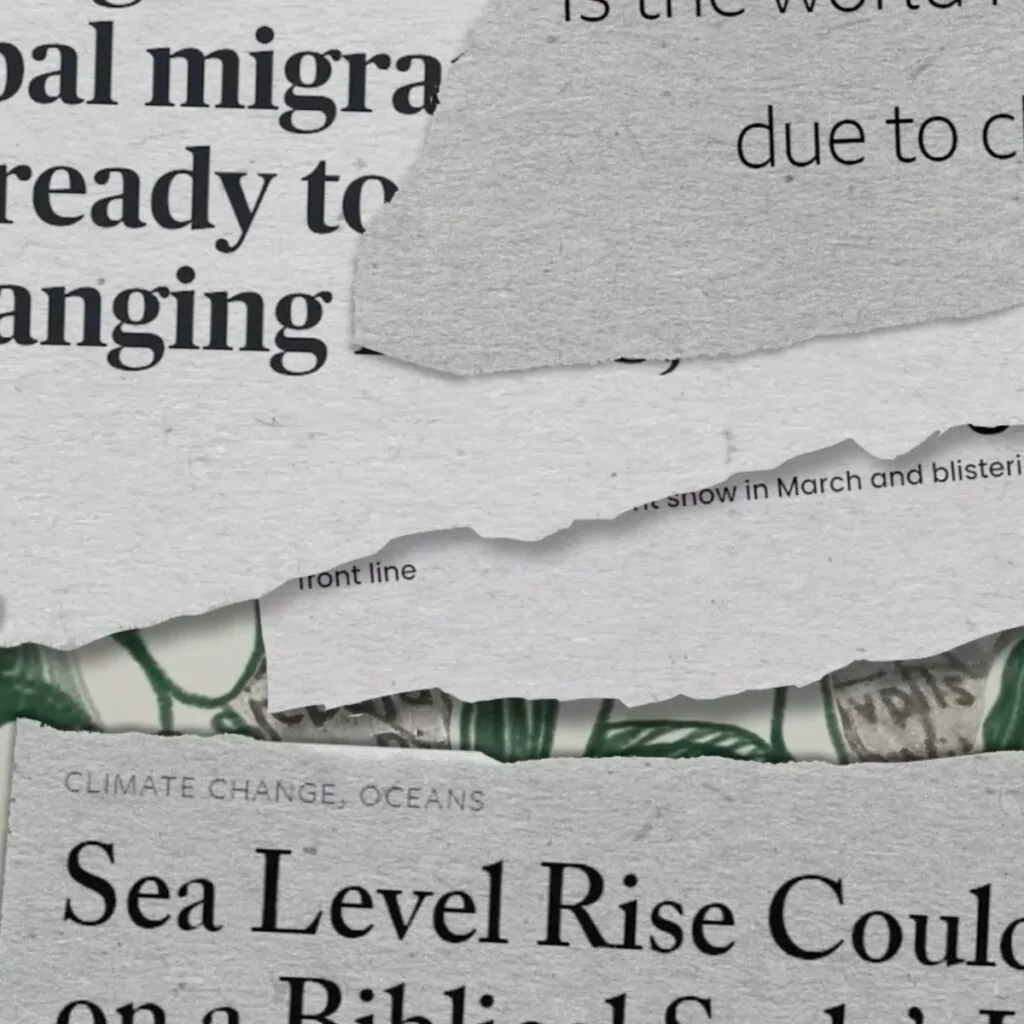Climate resilience is the best medicine
This month we put the spotlight on the interconnected relationship between the climate crisis and global health. We meet Laalitha Surapaneni from India, and Kim Loo from Australia, who share with us their firsthand experiences as medical practitioners dealing with the impacts of the climate crisis. Together, they help represent the voice of thousands of health workers who fight daily to maintain the safety, dignity and future of humanity.
We also bring you a new feature with the special participation of Graeme MacKay, an editorial cartoonist who has created an image that sums up the relationship between climate change and health workers.
And, as usual, we’ve got some recommendations for webinars, books and podcasts.
Happy reading!
From,
The Livism Team
Health effects of climate change: an emergency call
Dr. Laalitha Surapaneni is an assistant professor of internal medicine with a public health degree from Johns Hopkins Bloomberg School of Public Health Public Health, practising in Minneapolis. Her areas of interest are impacts of climate change on health equity, sustainable healthcare delivery, and the role of physician advocacy in developing science-based policy.
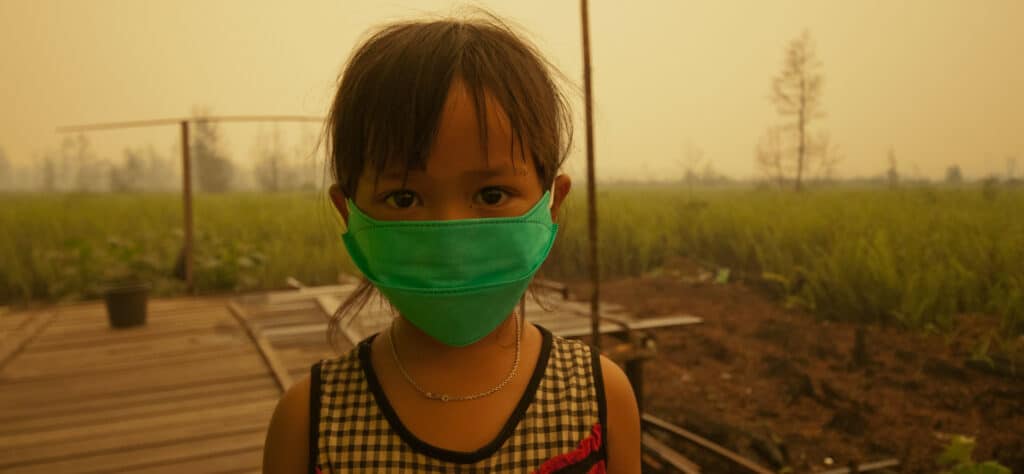

© Aulia Erlangga / CIFOR
The climate crisis is often seen as an environmental problem only, but it is actually something much more complex that affects our lives in several ways. One of these ways is our health. Originally from India, I currently practise Medicine in Minneapolis, USA.
My motivation to work on health and climate comes both from my personal experience growing up in India and caring for my patients – those I used to see in India, who would come in suffering from extreme heat or air pollution or those right here in Minneapolis who come in with asthma attacks because they live in really polluted areas. As a doctor, I can help them breathe easier, give them fluids if they are dehydrated, but then I have to send them right back into that polluted environment that is causing their health problems. Dealing with these health risks is a huge task for health practitioners.
Scientists have been warning the world for years: climate change, alongside biodiversity loss, are the two most serious global health threats of the twenty-first century. Direct climate change impacts are expected to result in an additional 250,000 lives lost per year between 2030 and 2050. Healthcare providers have been working tirelessly to save lives, but you don’t have to be a healthcare provider yourself to understand how important this is.
Among the impacts that the climate crisis is already having on our health, we find diseases resulting from changes in temperature, and lack of access to clean water leading to vector-borne diseases and destruction of crops resulting in food insecurity. Health system disruption is also one of the consequences of extreme weather events, such as hurricanes, droughts and floods.
While no one is immune, the impacts fall disproportionately on communities who are least historically responsible for these burdens. When a severe weather event strikes a country that is already struggling from poverty, starvation and conflicts, basic healthcare becomes inaccessible. This includes people from the Global South, Indigenous Peoples, people suffering from chronic health concerns, the elderly and young people.
In our interdependent world, our individual health depends on our collective health and the health of all species. The elimination of health disparities is critical to managing the health implications of climate change – without mitigation and adaptation, including loss and damage finance, the negative effects on the social determinants of health in the poorest communities will continue to increase and threaten all of humanity.
Climate resilient cities and environmentally sustainable health systems can help to lessen the health implications of climate change while raising the chances of a healthy future for all. Additionally, reforestation and poverty reduction, including improvements in housing and living circumstances, would minimise climate change hazard exposure. But all these actions must coexist with one important requirement: clean energy access for all. Fossil fuels are not compatible with a healthy future and we must take action to phase them out in order to build a healthy world. In short, we must prioritise environmental justice and public health over profits for the fossil fuel industry.
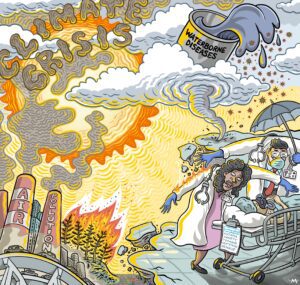

© Graeme MacKay
This cartoon sums up the relationship between climate change and health workers : the multiple crisis is pushing our health and life systems to the edge!
Spotlight on: Kim Loo
Dr. Kim Loo is a General Practitioner in Western Sydney, New South Wales (NSW), Australia. She is also the NSW Chair of Doctors for the Environment Australia, is on the NSW Council AMA (Australian Medical Association), and Chair of The Hills Doctors Association (a local doctor group organising educational meetings for peers). She advocates for a healthy future for everyone, directing her efforts towards a positive narrative in which all segments of society can contribute to a just and sustainable transition to clean energy, economy and society.
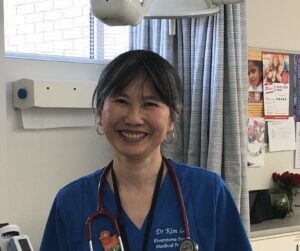

© From Dr Loo’s personal collection
We know the climate crisis has interconnected and cumulative effects on human health, can you share some personal examples from your experience in general practice?
I’ve been in general practice for 33 years and it’s over this time I have noticed how extreme weather, heatwaves and air pollution impact my patients. I joined the climate movement in 2015 because I understood late in my medical career that climate change deepens social inequity. The most disadvantaged and poorest members of our community were clearly less resourced to deal with the impacts of climate change.
For instance, during the heatwaves of 2019, when temperatures soared to 48 degrees celsius, we had bushfires with smoke that lasted 80 days. My patient Rebecca had a newborn baby during the heatwave and smoke coverage but she was in a rental property that had no air conditioning. Because of this, she ended up going – for 80 days – to the shopping centre or into the library with her newborn to escape the heat and smoke. She then moved to her mother’s house, which has an air conditioner, but it still wouldn’t prevent the smoke from coming in.
What have you been doing to raise the level of awareness of climate change and health among your patients?
The bushfire smoke was the first time my patients had smelt and tasted climate change: it was an epiphany for many. I’ve got posters on my wall saying climate change is making it hotter, with a little QR code to a fact sheet, and I’ve got a little sign saying global warming is real and showing these staggered rises of temperatures. People will point and say, “Oh, look, it’s cool now, global warming isn’t happening”, but I point out that the long-term trend is going up. I explain to my patients what to do during a heatwave and how to keep safe and cool. I point out that during my time working as a doctor I have noticed heatwaves becoming more significant.
Do you have any examples of initiatives to adapt or mitigate the impacts of climate change on people’s health that you would like to share with us?
Doctors for the Environment Australia (DEA) was established in 2004. Our founders were acutely aware that human health is inextricably linked to the health of our environment at a time when our health sector and wider community were not. The Australian Medical Association and all our colleges of medicine have since declared that climate change is the greatest threat to our health. This is from years of advocacy from the DEA. Education of the community is essential.
I have my local community group and we participate in local fairs with stalls, film nights and education nights with expert speakers – building community and connection is vital for resilience. Act local and think global. My local group knows our politicians and we write to our local members on a regular basis. Everything we care about will at some stage be impacted by climate change. This will be the same for those in power, regardless of political persuasion. We want clean air, clean water, a safe space to play and stay, a stable climate, and a healthy ecosystem. Those are things we need for survival.
My mental health has been impacted by the climate crisis. I have days when I feel unsettled and anxious. What saves me is living a life of advocacy alongside my medical vocation. I live a life with chickens, with a food forest in the backyard and mulched native forest in the front yard. I plant trees and bushes to encourage native insects and birds – places where wildlife can feel safe. I am vocal about this, it’s so important to have a positive narrative about what we can do. Climate change is complex and every part of society has to understand that, for meaningful action, every single decision by every portfolio for the government needs to be seen through a climate and health lens. We have to value care and caring.
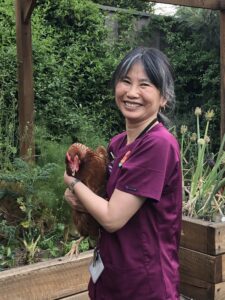

© From Dr Loo’s personal collection
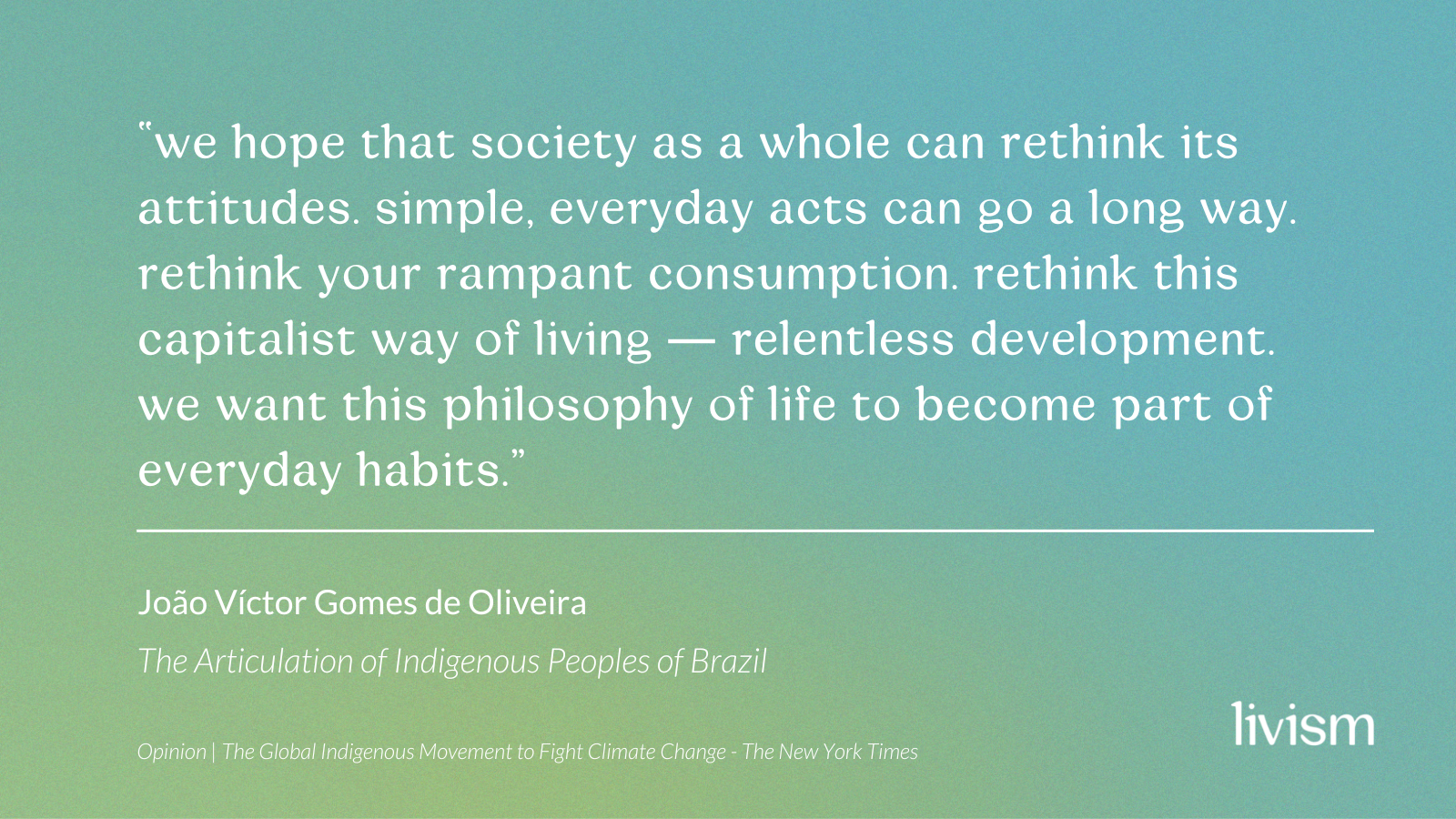

In case you missed it
In advance of COP27, over 250 health journals from around the world have joined forces to publish an editorial urging world leaders to deliver climate justice for Africa.
The health of people around the world is at the mercy of a persistent fossil fuel addiction, says the 2022 Lancet Countdown report on health and climate change.
Addressing climate impacts is key in the fight for climate justice – Pacific climate change activists will advocate for the creation of a loss and damage funding facility to advance climate justice for grassroots communities in the region.
Meet the winners of the 11th edition of the East African Photography Awards, featuring projects on Ethiopia’s war, Kenya’s urban development and Tanzania’s climate change.
Climate change and gender justice are inextricably interlinked. In South Sudan, food insecurity follows floods – Action Against Hunger works with women and youth to build sustainable rice paddies, promoting gender equity and reducing violence.
Jane Meriwas and Ellen Johnson Sirlief challenge us to build an equitable world in which our environment is protected and Indigenous women’s leadership is prioritised in climate decision-making processes.
Learn more about the Black Environment Network – a group of activists that works to reframe environmental and sustainability agendas and get more people of colour into environmental jobs.
Large emitters are being called to finance vulnerable groups for the loss and damage caused by climate change – but how can “non-economic” losses ever be compensated for?
Isabel Valentín from Puerto Rico shares her inspiring story of becoming a climate activist – “the best way is to be a platform that people can bounce your ideas off of.”
To improve science, it’s critical to end racism – read Nature’s message for its readers in this special issue on racism in science.
Greta Thunberg and musician Björk discuss greenwashing, fame, COP27, music and the matriarchy – you can check out their conversation on the World Review podcast.
Fearless Collective will be running workshops and a live mural painting at COP27 – if you want to be involved, you can submit a poster that will be shown in Egypt, learn more here.
Recommendations
What we’re listening to
Psychologist Thomas Doherty explores the personal side of climate change – your feelings, what the crisis means for you, and how to cope and thrive.
Former wildlife biologist, Zen priest and climate activist, Domyo Burk, offers weekly insights into how you can personally face the truth, stay strong, and take action in the midst of an ongoing climate and ecological emergency.
In the first programme on Spanish radio devoted exclusively to climate change, host Javier Bolaños tackles the climate emergency from different fronts while always keeping Andalusia in mind – a land that could suffer the effects of this global transformation like few others.
What we’re attending
This webinar will look at the connection between climate change and mental health, as well as how culture, politics and history influence this interaction.
When? Thu, 17 November, 2022, 15:00 – 16:30 GMT
Where? Online
National and global approaches to climate change mitigation are woefully inadequate because they ignore the role that wealth plays. Reducing this will be critical for humanity to meet the challenges of climate change, and this talk explores the practical ways to do so.
When? Fri, 18 November, 2022, 16:00 – 17:30 GMT
Where? Online
What we’re reading
- Nomad Century | Gaia Vince
In Nomad Century, author Gaia Vince points to the fact that global migration has more than doubled in the last decade, putting billions of people at risk in the coming decades. Vince wonders: how will this new great migration reshape us all?
- It’s Not Just You | Tori Tsui
In It’s Not Just You, climate activist Tori Tsui reframes eco-anxiety as a mental health crisis that encompasses many injustices and is deeply rooted in racism, sexism, ableism and, above all, capitalism.


